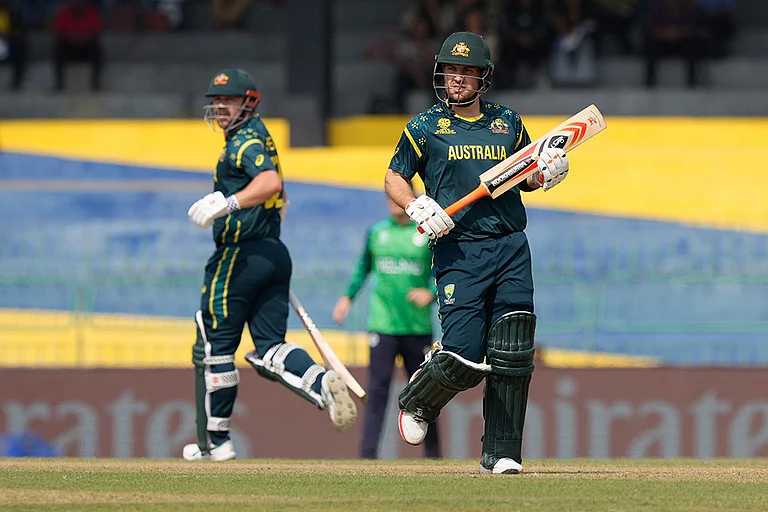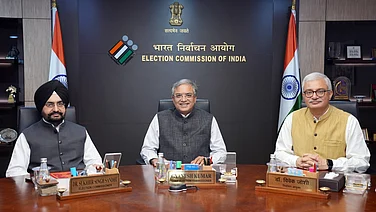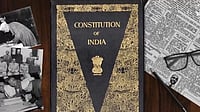Six years on, just like most other cultural standpoints and generation-defining moments, the #MeToo movement and its subsequent shockwaves, consequences, and changes across the planet have been met with a wide spectrum of reactions. One could argue that the universal recognition of the very term is a reflection of its impact everywhere, ranging from creating safer workplace environments, rising confidence amongst victims of sexual violence about speaking out, and proactive legislation along those lines that governments had taken far too long to reckon with.
However, the more muted reactions come when we ask what has translated into reality since then against the biggest names who were accused. The movement started with a powerful reckoning against Hollywood’s most powerful men. Now Weinstein, Haggis, and Spacey are all in courts or going through trials. The movement grew and spread precisely because the reckoning started with the prominent faces, thus empowering everyone else with the courage and wherewithal to also speak out or take action. Trickle-down economics, one could argue.
Yet, the same faces that helped turn the hashtag into something much larger and truly far-reaching are exactly where the debate rages on the true success and reach of the movement and the larger societal attitude towards sexual violence.
To be sure, there is a deeper understanding that sexual violence isn’t just sexual, but a careful abuse and appropriation of power. For the first time in a long time, these names were taken to the courts. While we celebrate that finally, some names that we could never imagine now saw the inside of the courts, we must remember the flip side. It is often the battle in the courtrooms which is the hardest and most traumatic for victims of sexual crimes to fight.
Prosecutors take them back to extremely specific events and happenstances from many, many years ago, a careful strategy to shred their narratives. Trials take forever and victims are often lost in the legalese of the laws while also having to relive their trauma and often seeing their perpetrators, also the most powerful men with resources to fight protracted legal battles walk free. Some did, and some didn’t.
India was no exception, and we take a look at some of the most high-profile cases on this front.
MJ Akbar
If Weinstein was the defining name of the U.S. trials, former Union Minister Mobasher Jawed Akbar was that name for the Indian movement. Journalist Priya Ramani named Akbar on Twitter, shortly after writing about her experience for Vogue in the context of the #MeToo movement then raging abroad. Akbar denied the charges but the public backlash was effective. Many other women stepped forward to share their experiences with Akbar. Following the numerous complaints and stories, Akbar had to resign from his post as a Union Minister.
He, however, filed a complaint of defamation against Priya Ramani and although the list of different complainants against him stood at 20, he remained undeterred. Akbar lost his defamation case against Ramani in a Delhi court but today serves as the editorial director for an English news channel, continuing to write and publish books, his public life still intact. Akbar also appealed the court’s decision in the Ramani case, based on which a notice was issued to her.
Ranjan Gogoi
Akbar was the first name but certainly not the biggest, nor the most wide-reaching in scope of the #MeToo movement in India. As the battles finally reached the courtroom, accusations were also levelled against former Chief Justice of India, Ranjan Gogoi.
While he was serving as Chief Justice, a woman employee of the Supreme Court filed affidavits accusing Gogoi of sexually harassing her. CJI Gogoi denied all charges and decried it as a conspiracy against him. He was later cleared by a three-justice bench of fellow judges, chaired by SA Bobde, who replaced him as the subsequent Chief Justice.
Following this, the woman spoke about being terrified of systematic victimisation with all her relatives employed having been dismissed by the service, following her protest against Gogoi. Project Pegasus later revealed that 11 phone numbers associated with the complainant and her family were found on a database, hinting at the possibility of snooping as well. But former CJI Gogoi was duly cleared of all charges and retired from the bench after a memorable tenure.
At present, Gogoi serves as a member of the Rajya Sabha and also sits on its Committee for External Affairs and also published his autobiography in 2021.
Nana Patekar
Tanushree Dutta manifested the Indian version of the #MeToo movement, starting things off, giving Nana Patekar the dubious title of being the first to be named in the Indian manifestation.
Dutta accused Patekar of harassing her on the sets of the movie, Horn, OK Please in 2009. Her allegations were backed up by journalist Janice Sequeira. Tanushree Dutta would go on to seek the help of the Maharashtra Women’s Commission in the matter against Patekar, filing an FIR against him.
Mumbai Police would later close the FIR on Patekar, stating that not enough evidence existed to prosecute him. Nana Patekar returned to public life in 2022, with his first film since the allegations titled, The Confession, and continues to work in the industry.
Rajkumar Hirani
Among the list of Bollywood names, Hirani’s was probably the most vaunted. A woman complainant stated that he assaulted her while she served as an assistant on his film, Sanju, and even took her complaints to Hirani’s co-producer Vinod Chopra.
However, although Hirani’s wife also confirmed that she also received the complaints and had offered all support from the side of the production company that Hirani, her, and Chopra ran together, Hirani denied all allegations and no action was taken, as the allegations went viral. Hirani continues to work in the industry and has remained one of its stalwarts. He is currently directing his next film, Dunki, which will star Shah Rukh Khan with whom Hirani will be working with for the first time and is slated for release later this year.
Vairamuthu
A famous lyricist and writer who continues to work in the Tamil film industry, the Sahitya Akademi and Padma Bhushan recipient was the big controversy of South India that came forward during the highs of the #MeToo movement.
Singer Chinmaayi Sripaada was the first to come forward and soon after many other women, ranging from journalists to TV presenters, also came forward with allegations against him.
Over 17 women have come out against him. Vairamuthu denied all allegations and remains an industry fixture as of today. Recently, he was honoured by the DMK government through a scheme for his contribution to Tamil literature.
Shortly after that honour, singer Bhuvana Seshan also came forward to share her story, stating that she had chosen to do so, because of the lack of any action against him since the bravery of Sripaada who stepped forward to speak out against him. But Seshan also expressed scepticism about whether anything would be done, given how despite the various allegations and multiple complainants, Vairamuthu had continued to loom large over Tamil film and literature.
When we look back to note how some of the most prominent names, who had been caught in the original rounds of #MeToo allegations, fared since then, from who was able to return to public life and who faced censure, it can be easy to find setbacks, but to view it through such lens is also choosing to take a myopic view of the #MeToo movement and its impact.
The courtrooms have always been imperfect venues to settle matters and the public memory has always been very short. That was the case before #MeToo and tends to still be the case. But to view the impact #MeToo movement through the trials that followed is to view it as a race, instead of the marathon it actually is.
When we see how it has created more sensitivity among the next generation of children, who will then grow up into more caring adults, voting for better legislation on sexual crimes, and creating safer environments everywhere from our workplaces to our bars and restaurants. Sheena Dalbhokar’s orchestration of the successful boycott of the popular Pune bar, ‘High Spirits’ showed that this was already starting to happen amongst the younger generation.
To look at the individuals is to restrict oneself. There have been steps in the right direction and although the scepticism is justified, now we know where to go from here. Arguments and lobbying efforts now focus on a broader range of efforts, like arguing for the importance of teaching more rural women to read so that they can now be aware, and eventually, the effects percolate to the rural level. To look at the top layer can often be disingenuous, with only a small percentage of big names that helped take the movement viral. One could argue, they served their purpose, a larger cultural awakening was inspired. Now when we look at the overall base of society, there may be cautious reason for optimism. A statistic recently published in the New York Times best reflected this. The #MeToo brought down 201 powerful men. Nearly half their replacements were women. It is not enough, maybe never will be, but it is a start in the right direction. Maybe one day, even the fights in the courtrooms will be much fairer too.


























